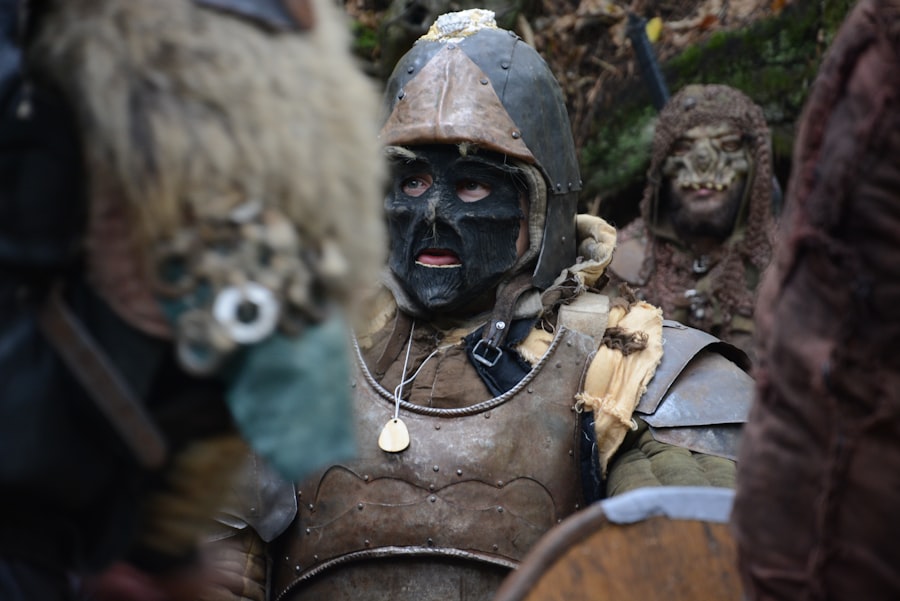The origins of kaiju, or giant monster movies, can be traced back to the early 20th century, where the seeds of this genre were sown in the fertile ground of Japanese cinema. The term “kaiju” itself translates to “strange beast,” and it was first popularized with the release of “Godzilla” in 1954. However, the roots of this cinematic phenomenon extend further back, intertwining with Japan’s cultural history and its relationship with nature.
The post-war era in Japan saw a surge in anxiety and fear, stemming from the devastation of World War II and the atomic bombings. This societal backdrop provided fertile ground for the emergence of kaiju films, which often reflected humanity’s struggle against overwhelming forces. In these early films, you can see how kaiju served as a metaphor for the fears and anxieties of the time.
Godzilla, for instance, was not just a giant lizard wreaking havoc; he symbolized the destructive power of nuclear weapons and the consequences of humanity’s hubris. The creature’s rampage through Tokyo mirrored the devastation experienced during the war, making it a poignant reflection of societal trauma. As you delve into these origins, you begin to understand that kaiju films are not merely about monsters; they are deeply rooted in the human experience, capturing our fears, hopes, and the complexities of our relationship with nature.
Key Takeaways
- Kaiju movies have their origins in Japanese folklore and mythology, drawing inspiration from ancient legends and stories.
- The evolution of Kaiju films has seen them transition from Japan to Hollywood and beyond, with iconic monsters like Godzilla becoming global pop culture icons.
- Giant monster movies have had a significant impact on pop culture, influencing everything from fashion and art to music and literature.
- The appeal of Kaiju films lies in their ability to provide thrilling escapism and spectacle, as well as tapping into primal fears and anxieties.
- Kaiju movies hold cultural significance, often exploring themes of environmental destruction, nuclear warfare, and the consequences of human arrogance.
The Evolution of Kaiju: From Japan to Hollywood and Beyond
The Rise of American Kaiju Films
In the 1990s, American filmmakers began to adapt the concept of kaiju, leading to a new wave of giant monster films that sought to capture the essence of their Japanese predecessors while infusing them with a distinctly Western flair. The 1998 American remake of “Godzilla” is a prime example of this evolution. While it aimed to introduce the kaiju concept to a broader audience, it faced criticism for straying too far from the original’s themes and characterizations.
A New Era of Collaboration
Nevertheless, this adaptation opened doors for future collaborations between Japanese and American filmmakers. The 2014 reboot of “Godzilla” by Legendary Pictures marked a turning point, as it successfully blended elements from both cultures while paying homage to its roots.
A Reflection of Cultural Significance
This evolution reflects not only a shift in cinematic style but also a growing recognition of the cultural significance that kaiju hold across different societies.
The Impact of Kaiju: How Giant Monster Movies Have Influenced Pop Culture

The impact of kaiju films on pop culture is undeniable. As you navigate through various forms of media, you will find that these giant monsters have transcended their cinematic origins to become cultural icons. From toys and video games to comic books and television shows, kaiju have permeated every aspect of popular culture.
Their influence can be seen in everything from fashion trends to music videos, showcasing their ability to resonate with audiences on multiple levels. Moreover, kaiju films have inspired countless filmmakers and artists around the world. The visual effects techniques pioneered in these movies have set new standards for special effects in cinema, pushing the boundaries of what is possible on screen.
You can trace a direct line from the practical effects used in classic kaiju films to the CGI marvels seen in contemporary blockbusters. This legacy has not only shaped the film industry but has also encouraged a new generation of creators to explore themes of environmentalism, technology, and humanity’s place in the universe through the lens of giant monsters.
The Appeal of Kaiju: Why Audiences are Drawn to Giant Monster Films
| Reasons for Appeal | Percentage of Audience |
|---|---|
| Visual Spectacle | 65% |
| Nostalgia | 20% |
| Escapism | 10% |
| Symbolism | 5% |
What is it about kaiju films that captivates audiences? At their core, these movies tap into primal fears and fascinations that resonate deeply within us. The sheer scale and power of these creatures evoke awe and terror simultaneously.
You may find yourself drawn to the spectacle of destruction as cities crumble underfoot or captivated by the intricate designs and personalities that these monsters embody. This duality creates an emotional rollercoaster that keeps viewers engaged from start to finish. Additionally, kaiju films often explore themes of resilience and survival.
As you watch characters confront seemingly insurmountable odds, you may find yourself rooting for them against all odds. This sense of hope amidst chaos is a powerful narrative device that resonates with audiences across cultures. The struggle between humanity and these colossal beings serves as a metaphor for our own battles against adversity, making kaiju films not just entertaining but also deeply relatable on a human level.
The Cultural Significance of Kaiju: Examining the Symbolism and Themes in Giant Monster Movies
Delving into the cultural significance of kaiju reveals a rich tapestry of symbolism and themes woven throughout these films. At their essence, kaiju often represent humanity’s relationship with nature—both its beauty and its destructive potential. You may notice that many kaiju films address environmental issues, highlighting the consequences of pollution, deforestation, and climate change.
These narratives serve as cautionary tales, urging viewers to reflect on their impact on the planet. Furthermore, kaiju can symbolize societal fears and anxieties beyond environmental concerns. For instance, during periods of political unrest or social upheaval, these monsters often embody the chaos and uncertainty that permeate everyday life.
By examining these themes, you gain insight into how different cultures interpret their struggles through the lens of giant monsters. This exploration not only enriches your understanding of kaiju films but also invites you to consider how art reflects and shapes societal values.
The Future of Kaiju: What’s Next for Giant Monster Films in the Global Cinema Landscape

As you look toward the future of kaiju films, it’s clear that this genre is poised for continued evolution within the global cinema landscape. With advancements in technology and storytelling techniques, filmmakers are now able to create more immersive experiences than ever before. You can expect to see innovative approaches to visual effects that push the boundaries of realism while maintaining the charm that has defined kaiju films for decades.
Moreover, there is a growing trend toward international collaborations in filmmaking. As audiences become more diverse and interconnected, filmmakers are increasingly drawing inspiration from various cultures to create unique interpretations of kaiju stories. This globalization opens up exciting possibilities for fresh narratives that resonate with audiences worldwide.
You may find yourself witnessing a new wave of kaiju films that not only honor their origins but also explore themes relevant to contemporary society on a global scale.
Kaiju in Different Cultures: How Giant Monster Movies Have Been Adapted and Received Around the World
The adaptability of kaiju films across different cultures is a testament to their universal appeal. As you explore how various countries have embraced and reinterpreted this genre, you’ll discover unique takes on giant monsters that reflect local myths, fears, and societal issues. For instance, South Korea’s “The Host” presents a modern twist on the kaiju concept by intertwining family dynamics with environmental concerns—a narrative deeply rooted in Korean culture.
In addition to adaptations, you may also notice how different cultures have received kaiju films with varying degrees of enthusiasm. While Japan remains at the forefront of this genre’s legacy, countries like Mexico and Brazil have produced their own interpretations that resonate with local audiences. This cross-cultural exchange enriches the global conversation surrounding kaiju films, allowing you to appreciate how these monstrous narratives transcend borders while still retaining their unique cultural identities.
The Legacy of Kaiju: Reflecting on the Enduring Influence of Giant Monster Movies on Cinema and Beyond
As you reflect on the enduring legacy of kaiju films, it’s evident that their influence extends far beyond cinema itself. These giant monsters have become cultural touchstones that inspire generations of filmmakers, artists, and fans alike. You may find yourself drawn to their stories not just for entertainment but also for their ability to provoke thought and discussion about pressing societal issues.
The legacy of kaiju is also evident in how they continue to evolve within popular culture. From merchandise to theme park attractions, these creatures have become ingrained in our collective consciousness. As you engage with this genre—whether through watching classic films or exploring new adaptations—you contribute to an ongoing dialogue about humanity’s relationship with nature, technology, and each other.
In this way, kaiju films remain not just relics of cinematic history but living narratives that continue to shape our understanding of ourselves and our world.
